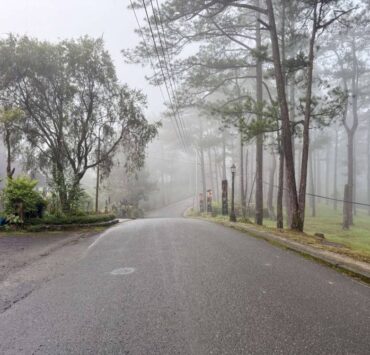Bangsamoro parliament urged to pass redistricting law by Nov. 30

With just days before the Nov. 30 deadline, Commission on Elections (Comelec) Chair George Erwin Garcia on Monday said it would be “difficult” for the agency to hold the first parliamentary elections in the Autonomous Region of Muslim Mindanao (BARMM) by March 31 next year if a new redistricting law is not passed by the end of the month.
Speaking to reporters in an ambush interview, Garcia clarified that his statement was not meant to put “pressure” on the Bangsamoro Parliament, but stressed that the Comelec “need[s] the law so that our scheduled timelines will be followed.”
“Because if those are not followed… how can we conduct an automated Bangsamoro parliamentary election that should be held by March 31 according to the high court?” he said.
The Bangsamoro Transition Authority (BTA), BARMM’s interim governing body, passed the Bangsamoro Parliamentary Redistricting Act of 2025 last August, which redistributed the seven seats originally allocated for Sulu in view of the Supreme Court’s (SC) decision to exclude the province from the region. But the High Court void the law for, among others, “violating the Bangsamoro Organic Law’s requirement that each district should comprise adjacent and adjoining areas as far as practicable,” noting that “some local government units in Lanao Del Sur, Maguindanao del Norte, and Cotabato City were assigned to different districts that were neither contiguous nor adjacent.”
The SC directed the BTA to enact a new districting law and reset the elections originally scheduled on Oct. 13, 2025 to not later than March 31, 2026.
Another complication
Garcia said he was also informed of a new law that was recently filed in the BARMM Parliament, which may allow the acceptance of new accreditation petitions for political parties and party lists and might further “complicate” preparations for the upcoming Bangsamoro polls given the “long process” for accreditation.
“If the Comelec accepts new applicants for accreditation due to the law, that means our list of political parties that are accredited and will be printed on the ballot is not final. Our [list of sectoral organizations] will also not be final if we reopen the accreditation [process],” he said.
“You may recall, almost 15 petitioners from political parties were accepted by Comelec, only seven were accredited…likewise, for the sectoral organizations, 1,500 petitions were accepted, but only 200 were accredited. What happens if we open the filing… again?” he added.
Last Friday, poll watchdog Legal Network for Truthful Elections (Lente) also urged the BTA to immediately pass a new redistricting law, noting that failure to do so may “endanger the March 2026 elections and undermine public trust in the process.”
Lente, in a statement, said the new law must be enacted “with sufficient lead time” to allow the Comelec to prepare for the parliamentary elections in March next year.
Lente said the BTA must also take note of other legal amendments aside from redistricting that can lead to operational setbacks regarding the conduct of the elections.
According to the group, the constant postponement of elections “erodes democratic legitimacy” and also risks establishing a “dangerous precedent where judicial or administrative uncertainties become grounds to defer elections already set by law.”
It added that delays in the passage of a new districting law prolongs the absence of an elected representative in the Bangsamoro parliament, undermining the regional autonomy and the right to suffrage of the Bangsamoro people.

















